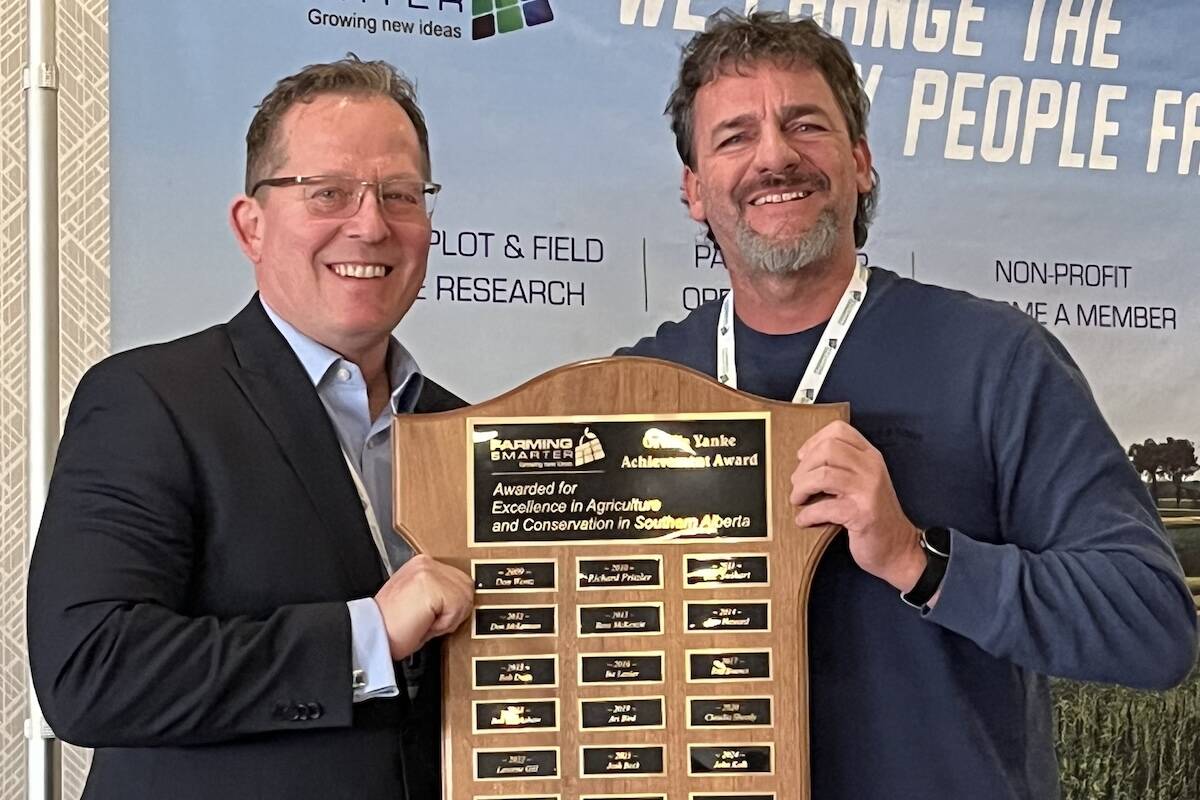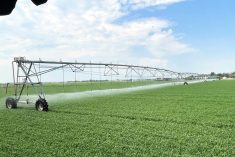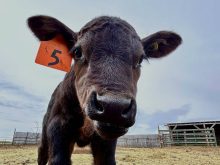Greg Stamp has become so well-known in Alberta’s seed industry that he barely needs an introduction. That didn’t happen by accident.
Stamp has always been keen to talk with farmers about their needs and expectations, whether through the media, blog posts or good old-fashioned face time.
Stamp and his wife, Sarah, were among the winners of this year’s Canada’s Outstanding Young Farmer national event in Laval, Quebec. He describes his strategy as “getting in front of a farmer.”
Read Also

Half a million plots and a lifetime of impact: Dr. Brian Beres wins Orville Yanke Award
The renowned Alberta scientist celebrated three decades of agricultural innovation and the pioneering of the GEM framework at the 2026 Farming Smarter Conference.
“Basically, it’s any way to get in front of a farmer, whether you’re speaking at a conference or writing an article or a blog post or a customer email,” said the Enchant-area seed farmer and retailer. In the process, he learns from customers and vice-versa.
“I’ve learned a ton from our customers and have been allowed to share that with our other customers. It’s a little bit of a give and take. Maybe they learned a little bit from us but we learned a ton from them,” he said.
“I think that lends to authenticity and trustworthiness because we’re dealing with the same problems our customers are and maybe seeing the same opportunities our customers are and sharing some of that back and forth.”
Now celebrating 43 years, the outstanding young farmer program is an annual competition that recognizes farmers 18 to 39 years of age who show excellence in their profession. Glacier FarmMedia, publisher of Alberta Farmer Express, is a media partner.
Stamp said he enjoyed the diversity among his fellow finalists, comprised of farmers across the country who work in various sectors and have a variety of experience.
“The only constant in the group is people that took a risk and worked hard, put their money on the line and contributed to their communities at the same time and the good of the ag industry in general,” he said.
Stamp Seeds was established in 1978 by Greg’s parents, Richard and Marian Stamp, in the heart of southern Alberta’s irrigation country.
What began as a partnership with his parents in 2006 has become two separate operations run by Greg and his brothers, Nathan and Matthew. Stamp Seeds retails pedigreed seed and Stamp Farms produces pedigreed seed for retail and contracts.
Youngest brother Nathan is the manager of Stamp Farms, Greg is the seed sales manager for Stamp Seeds and middle brother Matthew is the business operations manager who looks after various aspects of both companies.
“Sarah has been instrumental in developing management and succession plans to allow all the families to farm together,” reads a program news release.
Pedigreed seed is produced on 7,000 acres, 5,000 acres of which are under irrigation. Growing contract seed for others allowed Greg to expand the retail seed business and build a customer base.
The Stamp brothers use management zones and benchmark soil sampling to better manage fertility. On-farm field days, newsletters and social media are used to build awareness of the varieties produced.
Although Stamp Farms had been around for 18 years by 2006, that year represented something of a reset for the farm after some trying years.
“The 2000s were tough times,” said Greg. “There were some problems on the farm. The seed business had kind of went by the wayside a little bit as well.
“So essentially the mid-2000s was kind of a restart for the farm and seed business. That’s when we came back to the farm and there was a nine-year period from 2006 to 2015 where it was a tougher period for us.
“We tried to regroup, grow our acres and refocus on the seed business and retail sales, trying to connect our new customers and new products to customers. It was a real slow, slow grow.”
Eventually, the Stamps saw light at the end of the tunnel. Greg credits this to values rooted in strong customer service.
“Just being able to deliver on what you promised is key because there’s nothing worse than not meeting someone’s expectations. So we try to have a clear idea of what we’re going to provide someone, or at least if there is an issue, get in front of it.”
When it comes to the retail side of the operation, Greg said it’s largely a matter of matching the right varieties with the right customers.
“Not every variety is broad. Certain farmers are going to have a greater need for some kind of irrigation or dryland or management style. We might get someone who doesn’t want to put a lot of fertility down and that changes the variety we recommend.”
The Stamps try to keep an open mind about the kinds of crops they invest in, said Greg.
“We’ve never shied away from strange crops or crops that weren’t broad, like say faba beans or the hybrid ryes when they first came out.
“It seemed like whenever there was a glimmer of opportunity in something, we were right there and trying to take advantage of a trend or an opportunity.”
The Stamps’ variety yield trials remove some of the guesswork when determining how varieties perform under different circumstances. This allows them to better advise their customers, said Greg.
“We weren’t feeling like we were getting enough information from the variety trials that were out there for mainly cereals. We were just finding different results than what we were expecting from the varieties on our own farm. So we started doing our own variety comparisons — kind of side-by-sides, I guess.”
The trials have grown substantially. Last year the Stamps conducted side-by-side tests with 38 barley varieties plus wheats, triticales, winter crops and others.
“All of that is basically to help advise our customers on what varieties are best in that situation and also allows us to evaluate new varieties we may not be growing yet that we may pick up or we may not want to touch, based on what we see.
“It allows us to really get access to a lot of information faster. And people love it.”
What does the future hold for Stamp Seeds and Stamp Farms? Greg is optimistic.
“I think there’s still a lot of opportunity in the seed business. We’re in a nice area of southern Alberta with its long season and irrigation and that provides some stability for seed production.”
As for the seed industry itself, he believes it will become more tailored to individual producer needs.
“I think there will be more end users looking for specific traits or a certain variety. The market is calling for more purity, more traceability and more connection from end user all the way through the farmer to the seed producer and supplier. I think that may be an opportunity.”
Greg is a proponent of the outstanding young farmers program and encourages anyone — farmer or not — to nominate any producer ages 18 to 39 whom they think is doing a good job.
“The program highlights the opportunities in agriculture and it highlights success stories,” he said.
“I think it just showcases agriculture. So if we as a group all think agriculture is important and want to inspire the next generation, get them in the limelight.”
















